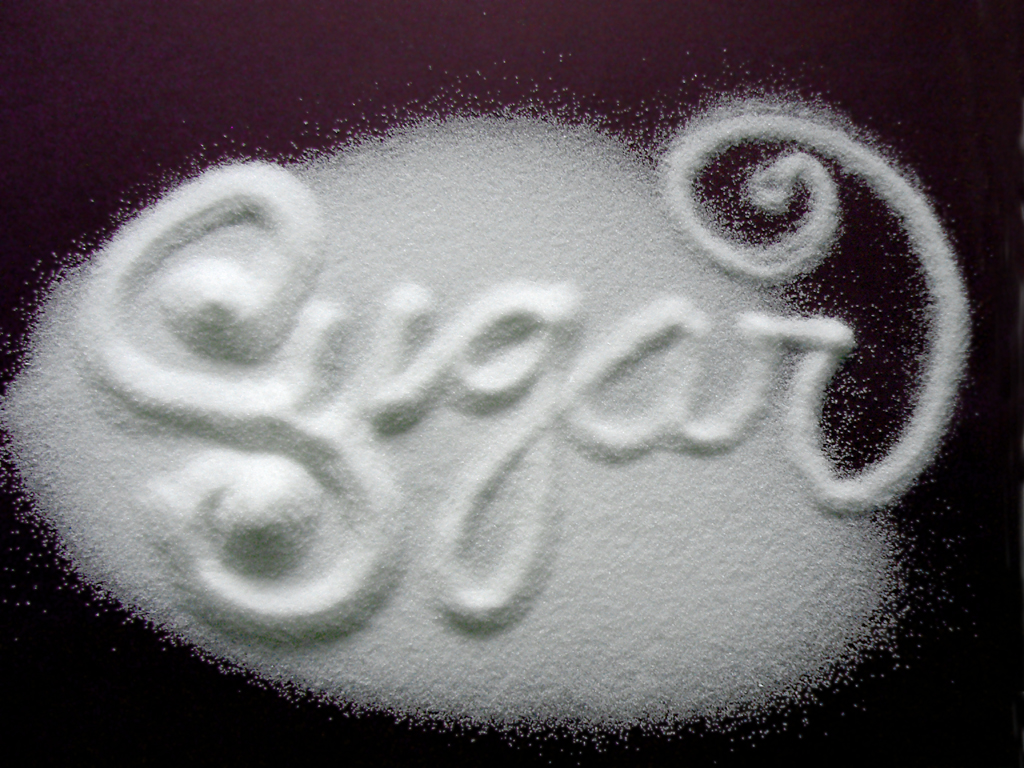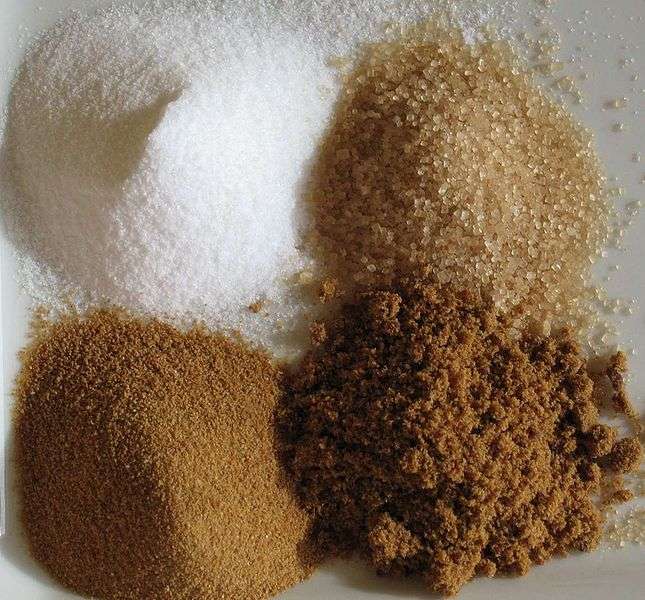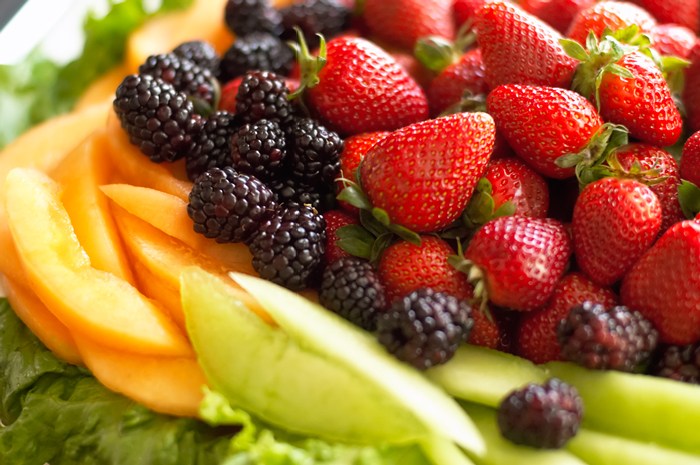The average American’s intake of sugar and other “natural” sweeteners has increased from 123 to as many as 160 pounds per year over the past 25 years, which averages more than 20 teaspoons per person per day!

Sweet Seduction
There are roughly 10 teaspoons of sugar in one can of Coke. As few as two sodas a day can wreck havoc on your health.
Sugar creates acid in the body which in turn creates inflammation. Chronic inflammation has been linked to many diseases including cancer, diabetes, heart disease, and obesity. Overconsumption of sugar compound attention challenges (ADD, ADHD) in both adults and children.
With so many different names for sugar, it can be challenging to navigate the market place. Let’s take a look….
The OSEs
(The suffix “-ose” is used to name sugars.)
Sucrose – common table sugar (made from sugar cane or sugar beets)
[not to be confused with Sucralose – non-branded Splenda (artificial sweetener)]
Fructose – naturally occurring in fruit, however isolated fructose is no longer fruit
Dextrose – (dextrorotatory glucose) sweetener from corn starch
Glucose – naturally occurring in whole food, however when isolated from corn starch it’s no longer wholesome
High Fructose Corn Syrup – extremely refined & highly addictive liquid fructose from corn
Lactose – milk sugar
Maltose – malted (fermented) grain sugar
Galactose – extracted from milk or beets

Many Colors of Sugar
Refined sugars
Beet Sugar – from sugar beets
Brown rice syrup – see rice syrup
Brown sugar (light or dark) – white sugar with molasses
Cane sugar/raw cane sugar – from sugar cane
Cane juice/cane juice crystals – from sugar cane
Caramel – cooked sugar
Carob sugar – extracted from carob tree pods
Castor sugar – superfine sugar
Coconut sugar – from coconuts
Confectioner’s sugar – fine sugar
Corn syrup – extracted fructose like Karo brand
Corn syrup solids
Date sugar – from dried dates
Demerara sugar – from sugar cane
Dextran – used medically
Diastatic malt – used by brewers (grain)
Diastase – form of maltose
Ethyl maltol – commonly used by confectioneries
Evaporated cane juice – from cane sugar with water removed
Fruit juice – extracted fruit sugar
Fruit juice concentrate – extracted fruit sugar with water removed
Glucose solids – crystallized glucose
Golden sugar – superfine brown sugar
Golden syrup – pale treacle
Grape sugar – extracted sugar from grapes
Icing sugar – powdered sugar
Invert sugar/syrup – glucose & fructose commonly used for longer shelf-life
Jaggery – date, cane juice or palm sap
Luo Han Guo/Monk fruit/Buddha fruit – extract
Malt syrup – from grains
Maltodextrin – extracted from corn starch or wheat
Molasses – by-product from production of sugar cane, grapes, or sugar beets into sugar
Muscovado sugar – from sugar cane
Palm sugar/arenga sugar – from date palm or sugar palm
Panela – whole cane sugar
Panocha – crude cane sugar
Rapadura – whole cane sugar
Raw sugar – first crystallization of sugar cane
Refiner’s syrup – treacle, invert syrup and sucrose
Rice syrup/brown rice syrup/rice bran syrup – from white rice or brown rice
Sorghum syrup – like molasses but from the sorghum plant
Sucanat – whole cane sugar
Treacle – made from syrup that remains after sugar has been refined
Turbinado sugar – from sugar cane
Yellow sugar – superfine light brown sugar
Common Sugar Alcohols (overconsumption can cause gastric distress)
Erythritol – least likely to cause gastric distress
Xylitol
Mannitol
Sorbitol
Maltitol
Mannitol
Lactitol
Artificial Sweeteners
Aspartame
Sucralose – non-branded Splenda
Neotame
Acesulfame potassium
Saccharin
Whole Sugars
Honey – use raw, local
Agave nectar – only use raw, dark, organic
Maple syrup – Grade B is best (most pancake syrup is HFCS)
Barley malt syrup – unrefined sweetener from sprouted or malted barley
Natural Sugar Substitue
Whole stevia – sweet herb
THE BEST SUGAR
Whole fruit! The natural fructose is packaged with appropriate amounts of water and fiber to allow the fructose to absorb slowly and safely into the blood stream. The human body needs glucose to fuel the cells, and natural fructose in fruit is the safest way to get it.

Natural Fructose
WARNING: When reading ingredient labels, know that manufacturers are required to list the order of ingredients from highest in weight to lowest. So the first ingredient listed makes up the largest percentage of the product, and then downwards from there.
It is recommended that sugar (of any kind) not be listed in the first three ingredients of an ingredient list. Clever manufacturers know this and to skirt the issue, they use several different kinds of sugars so that they can each appear lower in the list. Had only one kind of sugar been used, it more than likely would have appeared higher on the list, perhaps in the top three.
It is also recommended that you limit your added sugar intake (refined, alcohol or whole sugar products) to 3 teaspoons a day. Make it organic if you can. This doesn’t make it healthier, just safer from GMOs and pesticides.
In my free 8 First Steps to a HAPPY™ Kitchen guide and in my free 9th HAPPY™ Step online food course you will learn the hierarchy of best to worst sugar choices, which sugars to always avoid, how to determine real Stevia and why all artificial sweeteners should be avoided, especially by children. Click on the links to the guide and course in the first sentence of this paragraph to get them coming into your email inbox.
Can you think of a sugar not on this list? If so, please share it in the comments below. I’d love to see this list become comprehensive and a useful resource for wellness seekers. Thank you for your help!
Additional Resources:
The Problem with Fruit
How Much Water Do You Have to Drink to “Undo” a Cola?
Is Cancer Caused by Candida?

{ 2 comments… read them below or add one }
Great article! Artificial sugar is one of the biggest causes of health issues, but there’s a lot of misconceptions about sugar, and this article explains it really well. What sugars do you prefer to consume on a weekly basis? Any types of foods you prefer?
Thank you. I rarely use added sugar except in the occasional cup of coffee. I prefer all my sweetness to come in the form of whole fruit.
{ 5 trackbacks }